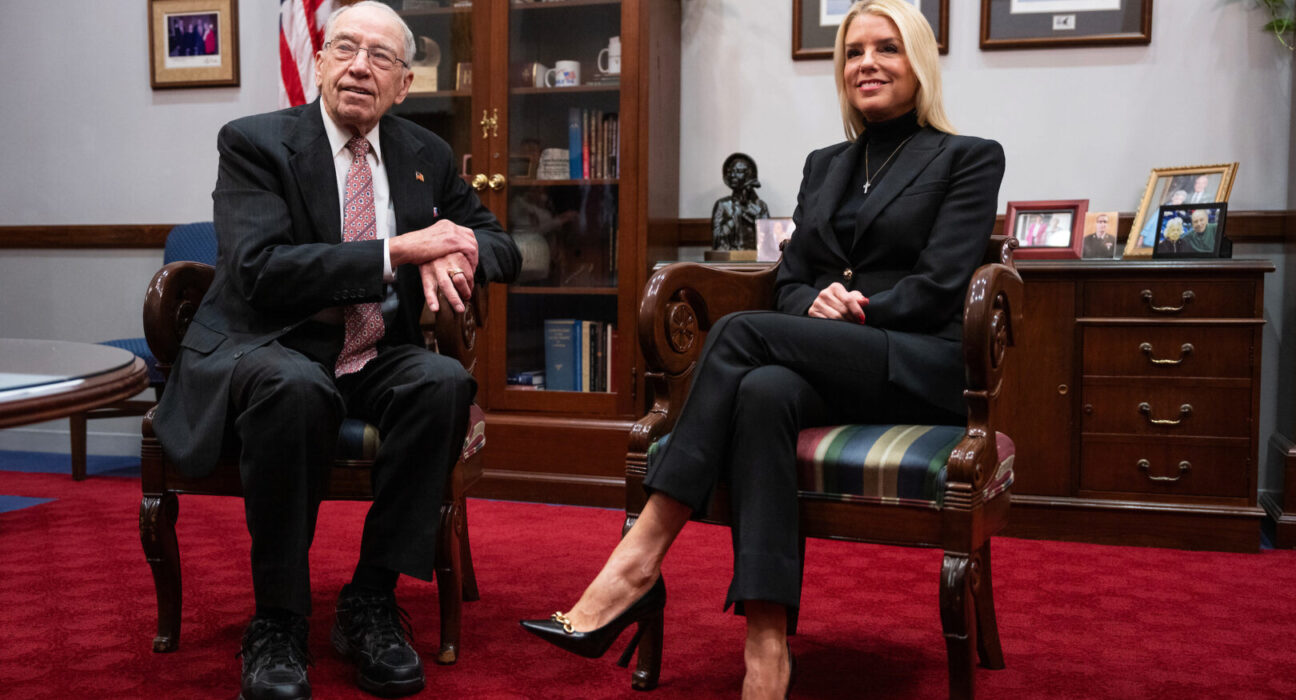The political landscape is buzzing with discussions as GOP senators scrutinize the details of President Trump’s ambitious budget bill. The House-passed bill, often described as “one big beautiful bill,
” has sparked intense debates among Republican lawmakers, each expressing their concerns and proposing changes to various aspects of the legislation.
As the Senate delves into the mammoth budget package that encapsulates Trump’s second-term agenda, a sense of urgency fills the air. The bill, which barely made it through the House with a slim one-vote margin solely from Republican support, now faces scrutiny in the Senate. Key GOP senators are raising red flags over certain provisions within the bill, potentially reshaping its trajectory.
House Speaker Mike Johnson recently emphasized unity among Republicans and urged his Senate counterparts to handle the bill delicately. In an interview on “
Face the Nation with Margaret Brennan,” Johnson stressed, “that we are one team.
” He pleaded for minimal modifications to maintain a fragile balance within their diverse caucus.
Senate Majority Leader John Thune acknowledged this delicate equilibrium but hinted at inevitable alterations, stating confidently that “
the Senate will have its imprint” on the bill. With room for only three dissenting Republican votes before relying on Democratic support for passage, every adjustment becomes crucial.
Senator Rand Paul of Kentucky has already voiced his opposition to the bill due to concerns about escalating national debt. He emphasized how the proposed $3.1 trillion increase in debt outlined by experts raised significant alarms among fiscal conservatives within his party.
Amidst these deliberations lie critical sticking points that demand attention as the legislation progresses through Senate chambers:
Medicaid modifications have drawn mixed reactions from GOP senators like Susan Collins, Lisa Murkowski, and Josh Hawley. While some support new work requirements aimed at childless Medicaid recipients aged 19-64 without disabilities, others fear detrimental impacts on Medicaid benefits for vulnerable populations.
Senator Hawley expressed profound concerns about potential cuts affecting healthcare accessibility for low-income individuals. In a noteworthy statement on CNN, he criticized provisions that could burden working-class Americans seeking essential medical care through additional copays.
The call for deeper spending cuts echoes loudly among fiscal hawks like Senators Ron Johnson and Rick Scott who find existing reductions insufficient. Disagreements over proposed $1.5 trillion cuts have stirred demands for more aggressive slashes reaching up to $2 trillion or beyond.
Rolling back IRA clean energy tax credits remains a contentious issue within party ranks as senators weigh environmental priorities against economic implications. Senator Murkowski and her colleagues caution against abrupt repeals that could disrupt domestic energy development efforts.
Discussions around state and local tax deductions have intensified following debates in lower chambers where adjustments saw blue-state Republicans settling for increased deduction caps amidst pushback from conservative counterparts advocating elimination or reduction of such allowances
Furthermore, tensions rise over plans to raise debt ceilings by trillions in light of growing national debts – a move vehemently opposed by fiscal conservatives led by Senator Paul who advocates for separate votes exclusively focused on this contentious issue.
Food stamp program revisions adding states’ cost-sharing responsibilities post-2028 have also triggered concerns regarding potential burdens on low-income families relying on federal aid for groceries — prompting calls for thoughtful revisions addressing vulnerable communities’ needs amidst broader financial restructuring endeavors.
As each senator navigates complex policy waters aiming to shape a fiscally responsible future while safeguarding essential services,
the halls of Congress resonate with impassioned exchanges signaling pivotal moments ahead.

